Embarking on a career in real estate is a journey filled with promise and potential. Whether you’re looking to buy, sell, or manage properties, obtaining a property license is a crucial first step. At Permanent Property Solutions Ltd, we understand the importance of this milestone, and we’re here to guide you through the process. In this comprehensive blog, we’ll cover everything you need to know about getting your property license and starting your journey to success.
Understanding the Importance of a Property License
Why You Need a Property License
A property license is more than just a legal requirement; it is a testament to your knowledge and commitment to the profession. It ensures that you understand the laws, regulations, and ethical standards governing real estate transactions. A licensed real estate professional is trusted by clients and peers alike, making it easier to build a successful career.
Legal and Professional Benefits
Holding a property license provides numerous benefits, including:
- Credibility: A license enhances your credibility and reputation in the industry.
- Legal Protection: It ensures that you are operating within the legal framework, protecting you and your clients.
- Market Access: Licensed professionals have access to exclusive listings and real estate networks.
Requirements for Obtaining a Property License
Educational Prerequisites
The educational requirements for a property license vary by location but generally include:
- High School Diploma or Equivalent: The minimum educational requirement.
- Pre-Licensing Courses: These courses cover essential topics such as real estate principles, practices, and law.
Background Checks and Legal Requirements
Most licensing authorities require a background check to ensure that applicants meet ethical and legal standards. This typically includes:
- Fingerprinting: For identity verification and background checks.
- Background Investigation: To ensure no criminal history that could affect your eligibility.
Steps to Acquire Your Property License
Research Your State’s Requirements
Each state has specific requirements for obtaining a property license. It is crucial to research the regulations in your state to ensure compliance. This information can usually be found on your state’s real estate commission website.
Complete Pre-Licensing Education
Enroll in an accredited real estate school to complete the required pre-licensing education. These courses are designed to provide you with the foundational knowledge needed to pass the licensing exam and succeed in your career.
Pass the Licensing Exam
The licensing exam is a critical step in obtaining your property license. It typically consists of two parts:
- National Portion: Covers general real estate principles and practices.
- State-Specific Portion: Focuses on state laws and regulations.
Submit Your Application
Once you pass the exam, submit your application for a property license to your state’s real estate commission. This process usually includes:
- Application Form: Completed with accurate and up-to-date information.
- Application Fee: A non-refundable fee paid to the state real estate commission.
Preparing for the Property License Exam
Study Tips and Resources
Successfully passing the property license exam requires thorough preparation. Here are some tips to help you study effectively:
- Create a Study Schedule: Allocate specific times for studying each day.
- Use Multiple Resources: Utilize textbooks, online courses, and practice exams.
- Join Study Groups: Collaborate with peers to reinforce learning and share knowledge.
Practice Exams and Mock Tests
Taking practice exams is one of the most effective ways to prepare for the licensing exam. These tests help you:
- Familiarize with the Format: Understand the structure and types of questions.
- Identify Weak Areas: Focus on topics where you need improvement.
- Build Confidence: Reduce anxiety by simulating the exam environment.
Post-Licensing Education and Continuing Education
Initial Post-Licensing Courses
After obtaining your property license, many states require you to complete post-licensing education within the first year. These courses build on your foundational knowledge and help you transition into your new career.
Continuing Education Requirements
To maintain your license, you must complete continuing education courses. These courses ensure that you stay updated on the latest industry trends, laws, and practices. Topics typically include:
- Legal Updates: Changes in real estate laws and regulations.
- Ethics: Maintaining high ethical standards in your practice.
- Specialized Topics: Advanced courses in areas such as commercial real estate or property management.
Career Opportunities with a Property License
Real Estate Agent
As a licensed real estate agent, you can help clients buy, sell, and rent properties. This role involves:
- Client Representation: Acting in the best interests of buyers and sellers.
- Market Analysis: Assessing market trends to provide informed advice.
- Negotiation: Facilitating negotiations to achieve favorable outcomes for clients.
Property Manager
A property manager oversees the daily operations of rental properties. Responsibilities include:
- Tenant Relations: Handling tenant inquiries and complaints.
- Maintenance: Ensuring properties are well-maintained and repairs are conducted promptly.
- Financial Management: Managing budgets, rent collection, and financial reporting.
Real Estate Broker
With additional experience and education, you can become a real estate broker. Brokers have the authority to manage their own real estate firms and supervise agents. Duties include:
- Business Management: Running a real estate office and overseeing staff.
- Compliance: Ensuring all transactions comply with legal requirements.
- Mentorship: Training and mentoring new agents.
Tips for Success in Real Estate
Building a Strong Network
Networking is essential in real estate. Build relationships with:
- Clients: Provide exceptional service to earn referrals and repeat business.
- Industry Professionals: Connect with other agents, brokers, and industry experts.
- Community Members: Engage with your local community to increase your visibility and reputation.
Leveraging Technology
Use technology to enhance your efficiency and reach:
- Digital Marketing: Utilize social media, websites, and email marketing to attract clients.
- Real Estate Software: Implement tools for property management, customer relationship management (CRM), and virtual tours.
- Online Education: Continue learning through webinars, online courses, and virtual conferences.
Staying Informed
The real estate market is constantly evolving. Stay informed by:
- Reading Industry Publications: Subscribe to real estate magazines, blogs, and newsletters.
- Attending Workshops and Seminars: Participate in events to learn about the latest trends and strategies.
- Joining Professional Associations: Become a member of organizations such as the National Association of Realtors (NAR) to access resources and networking opportunities.
Conclusion: Your Path to a Successful Real Estate Career
Obtaining a property license is a significant achievement that opens the door to numerous opportunities in the real estate industry. By following the steps outlined in this guide, you can navigate the licensing process with confidence and begin your journey toward a successful and fulfilling career.
At Permanent Property Solutions Ltd, we are committed to supporting your professional growth. Our resources and expertise are designed to help you succeed in the competitive real estate market.






